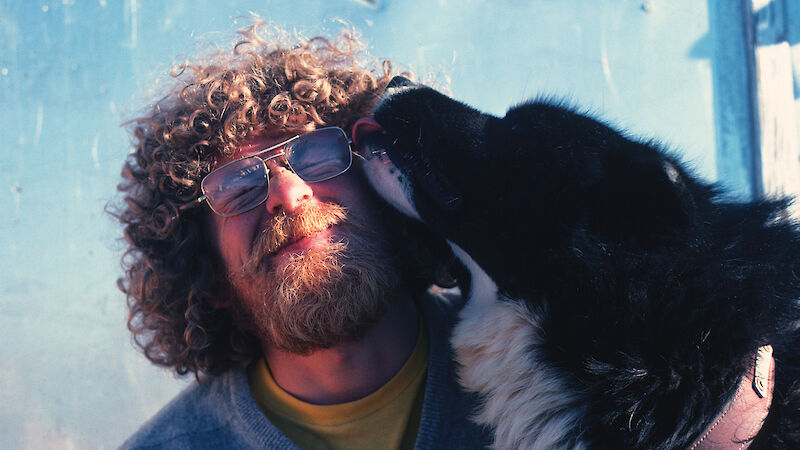One thing I had learned was that in the unique community of people who work for the Australian Antarctic Program, or ANARE (Australian National Antarctic Research Expeditions) as we knew it then, an Antarctic wintering expeditioner is top dog, and highest bragging rights go to those who have spent more than one winter there.
Tom’s ANARE star shone bright in 1987. Having twice wintered at Mawson station, he was about to enter the rarefied ranks of three-time winterers, this time as station leader at Casey. But no-one would have known it; to all outward appearances, Tom was just one of the lads.
Greg Corbin, a friend of Tom’s since their childhood in Melbourne, revealed at his funeral service in January that Tom was a ranking officer in his school’s cadet corps — something that came as a surprise to me. It shouldn’t have been; Tom was unquestionably a leader.
As Greg described it, Tom’s leadership style was not top-down, but from within his group. Over many years I saw that in operation, while working alongside him in our policy, planning and information branch. He was a facilitator, an encourager, getting results without making a fuss.
At Tom’s farewell service, his daughters Bonnie and Georgina gave eloquent testimony to those same qualities at home: to his warmth and good humour and his unconditional love for them.
There were other loves, epitomised in two winters at Mawson in the 1970s where, besides being the radio operator, Tom served as sledge dog handler. At that time Mawson was the only station with dogs, which is why he returned there for a second stint.
Tom was a wonderful communicator. ANARE veteran Shelagh Robinson provided the perfect vehicle for three of Tom’s passions — words, dogs and the great outdoors — in a book she edited to celebrate Australia’s Antarctic dogs, Huskies In Harness, published in 1995.
Take these reflections on an autumn sledging trip to Fold Island, west of Mawson [“Fold Island, black and white, May 1977”]. The first is about the obstinate refusal of his lead dog, Dan, to turn left as ordered to get them to their destination, a hut named Alice’s Restaurant:
What is humble pie? Humble pie is when half a million years of walking upright, using tools, and landing on the moon does not make you any smarter than a dog…. God knows where we would have finished had he obeyed our commands…. As the sledge slowed to a halt on the slope, the boys [dogs] sat puffing and gulping snow, and we stared silently in the gloom at the little red box with the sign “Alice’s Restaurant”, right in front of us.
Then the return to base:
Remember that final run up towards the doglines… the trudge trudge trudge delivering dogs to their place on the lines and clipping them on. Removing their harness for the last time that trip, rubbing them down, hugging and being hugged, oblivious to that incessant tongue and that wet salty nose. Looking over your shoulder at those magnificent animals as you walk up to Shacko at the end of the day for a shower; and sitting there quietly before bed that night, clean and fed, hearing the jingle of a chain in the distance, and trying to find words for it all.
He found the words well enough. I wish I had such a gift. I am proud to have known this warm, humble, generous man and sad indeed that he is lost to us.
Peter Boyer
Peter Boyer managed the Australian Antarctic Division’s public information services from the late 1980s to 2002. He now writes a weekly column in the Hobart Mercury on the science and politics of climate change.

